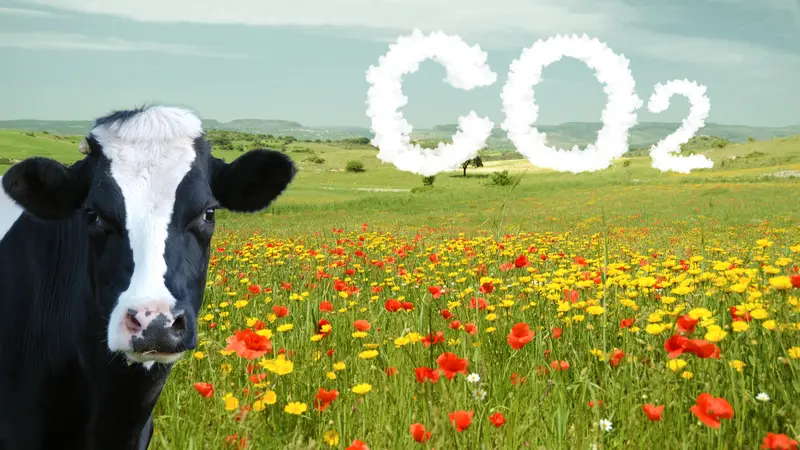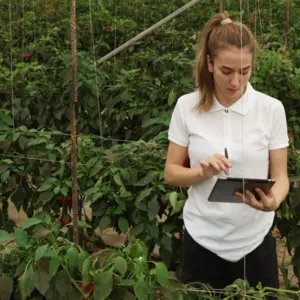

Planet and People Connection

Planet and People Connection
Impacting Climate Change through Food
There is a significant link between the food that we produce and consume and the climate crisis. While one can feel overwhelmed and powerless to fix climate change, making different choices at the grocery store and in the kitchen is a simple and meaningful start to helping heal the planet.
Livestock, and particularly cows, are responsible for a large amount of greenhouse gas emissions. Methane (CH4), produced by both the animals and their manure, is often overlooked as a climate change contributor because it does not stay in the atmosphere as long as carbon dioxide (CO2). But methane is at least 28 times more destructive as CO2 because it traps more heat than CO2.
Livestock have additional indirect impacts on the climate. Around the globe, millions of acres are being deforested to grow corn and soy to feed livestock, or to create grazing land for cattle. When the land is torn up, it releases the CO2 the trees and plants had absorbed back into the atmosphere. In addition, livestock crops such as soybeans, alfalfa, and corn give off nitrous oxide and depend on large amounts of carbon-emitting fertilizer.
A study published in the journal Science in 2018 examined data from 40,000 farms across 119 countries that represented 90% of everything eaten. Researchers found that livestock provides only 18% of food calories and 37% of protein consumed but uses 83% of farmland. At the same time, livestock accounted for 57% of water pollution, 56% of air pollution, and uses one-third of the world’s fresh water.
The answer then is to eat less meat—or none at all. Researchers have estimated that greenhouse gas emissions could be cut by more than half if people switched to a plant-based diet. Start with “meatless Monday” by swapping out the meat for plant-based proteins like beans and lentils. If Mexican food is on the menu, use black and pinto beans instead of beef and chicken. If it’s Italian, try white beans or lentils in the sauce instead of veal and pork.
As the weekly meal plan comes together, consider the carbon footprint of the meat and other food products that end up in the shopping cart. In 2011, the Environmental Working Group released a report on the greenhouse gas effects of 20 common foods consumed in the US. Beef leaves a carbon footprint 10 times larger than pork or chicken, and chicken’s footprint is seven times larger than lentils. The other top greenhouse gas polluters included lamb, natural cheese, farmed salmon, and eggs.
So, what goes into the shopping cart that is good for the environment? Answer: plant-based foods. The Environmental Working Group found the following foods emitted fewer greenhouse gases into the environment: lentils, tomatoes, dry beans, tofu, broccoli, nuts, rice, potatoes, green peas, amaranth (a grain), and oranges.
Buying foods grown locally reduces the carbon footprint associated with its transportation. Also, buying organic food reduces greenhouse emissions as organic farmers don’t use chemical fertilizers and cultivate healthy soil, which stores more carbon.
REFERENCES
Robbins, O. (2021, August 31). What you eat can impact climate change! See 9 foods that harm the planet and 11 foods that can help save it. Food Revolution Network. https://foodrevolution.org/blog/food-and-climate-change/?


 By
By







